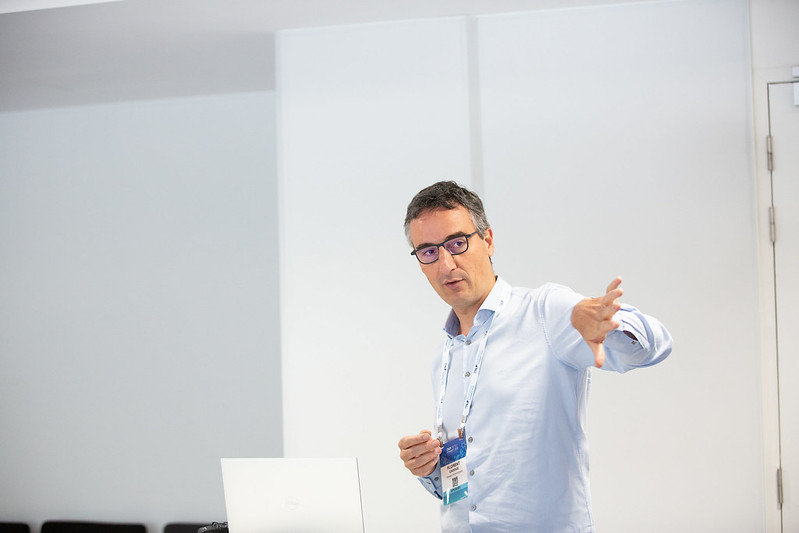LF Energy Summit 2023 Recap: Open Source Tools Paving the Path to Decarbonization
LF Energy Summit 2023 brought together industry experts and innovators to discuss the pivotal role of open source tools in driving the journey towards decarbonization in the energy sector. One of the sessions, titled “Open Source Tools for Revealing the Way Towards Decarbonization,” featured a presentation by Davis Montenegro from EPRI (Electric Power Research Institute) and Florent Cadoux from Roseau Technologies (video follows below). The session delved into the impact of open source tools, with a specific focus on the OpenDSS (Distribution System Simulator), in reshaping the energy landscape.
The Power of Open Source: A Transformative Force
Montenegro and Cadoux emphasized the transformative potential of open source tools. They highlighted the significant impact that open source software, particularly OpenDSS, has had on the electric power industry. OpenDSS, originally developed by Roger Dugan in 1997, was initially a private product but was later made open source in 2008. This move was intended to foster collaboration, innovation, and grid modernization efforts.
Introduction to EPRI
The presentation began with an introduction to EPRI, a non-profit research institute, which has been at the forefront of the electric power industry for over five decades. Their experts collaborate with numerous companies globally to drive innovations and ensure reliable, clean, and equitable access to electricity. The guiding principle of “together shaping the future of energy” underscores their commitment to industry advancement.
Unveiling OpenDSS
OpenDSS, a central focus of the session, was introduced as a versatile frequency domain simulation engine. This open source tool empowers users to create intricate models of electric power distribution systems, facilitating various analysis related to distribution planning and power quality. OpenDSS is renowned for its modeling flexibility, accommodating diverse load models and circuit configurations. The tool’s heritage, closer to a harmonic flow analysis program than a typical power flow program, enhances its analytical capabilities.
Real-world Applications
The presenters showcased the practical applications of OpenDSS. They revealed how OpenDSS has been instrumental in real-time simulations, supporting renewable energy project development, and addressing challenges in grid modernization. The ability to create accurate models based on actual data from power distribution networks has empowered researchers and developers to make informed decisions and devise strategies for sustainable energy integration.
Data Integration and Challenges
Montenegro and Cadoux acknowledged the challenges of data integration and the importance of data quality. Inaccuracies and inconsistencies in data can hinder the effectiveness of open source tools. Despite this, they shared strategies to make sense of the data and its integration into the simulation models. They also discussed the potential for collaboration between industry stakeholders, software vendors, and academia to enhance data quality and ensure accurate analysis.
Collaborative Impact
The presenters underscored the collaborative impact of OpenDSS on the energy industry. The tool’s open source nature has led to over 158,000 downloads, fostering a vibrant community of developers and users. This collaborative environment facilitates discussions with utilities, software vendors, and academia. It serves as a platform for sharing advancements, proposing ideas, and collectively shaping the future of energy analysis and distribution.
